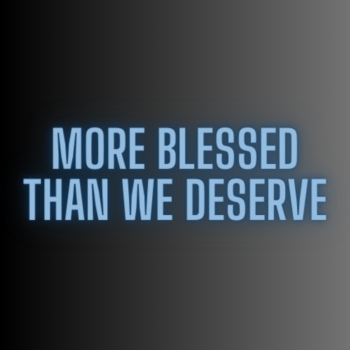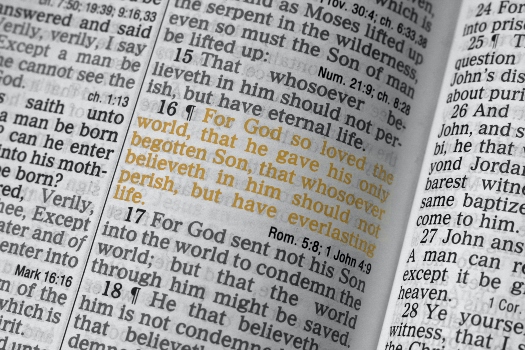Maybe It’s Easier Than You Think
Meeting famous people can be exciting. We’ve all seen people fawn over some famous person. If we meet or know someone famous, we tend to drop names like we’re old friends. I know I’ve done this on occasion.
Why is this?
I think often it’s because we have a low perception of ourselves, and it makes us feel more important and valuable.
This low self-perception is a lie. We’re all just as important as anyone else.

If you’ve ever had a chance to get to know someone famous, more often than not, you find that they aren’t that different than anyone else.
After all, God made us all in His image. (Genesis 1:27) That sounds to me like we’re all pretty important!
When Jesus was just starting His ministry, John the Baptist introduced Andrew, one of his disciples, to Jesus as “the Lamb of God”. Andrew then went and found his brother Simon and invited him to come meet Jesus, whom he called the Messiah.
Jesus was someone pretty famous.
Andrew invited Simon to come meet Jesus…he didn’t just tell him about Him.
We know Simon as Peter, the Rock on which the Church was built. (John 1:35-42) Peter also became pretty famous.
So, if Jesus is famous and we know Him and He knows us, (John 10:14) doesn’t that mean that we are important and worthy?
People are interested in famous people. It’s no different with Jesus. People are curious and want to know more about Him. If people are invited into a community of authentic Christian believers…they can get to know Jesus, rather than just being told about him.
People need to be invited to meet Jesus.

This invitation can come from Christians in a church. There’s also an invitation that comes from within each of us.
Preceding or prevenient grace is a way to understand how God’s grace works in our lives even before we become saved.
Prevenient grace is the idea that God’s grace enables people to respond to him. It goes out to everyone, enabling them to respond in faith to what Jesus has done for us.
The theory of prevenient grace was developed to reconcile the tension between God’s sovereignty and human free will. It allows believers to exercise the free will God has given us.
Prevenient grace is a form of grace that only acts on a person before they are saved. It is distinct from sanctifying grace in that way. There is a change in the type of grace a person receives once they enter a relationship with God. The process of sanctification is still similar; it is still a yielding to God’s perfect will at our own expense. In sanctifying grace, however, the Spirit helps us as we become more and more like Jesus.
Prevenient Grace is at the very beginning of that process.

The idea of prevenient grace developed in response to Calvinism by Jacob Arminius. At the time, it emphasized the Calvinist idea that God had unconditionally chosen who would believe, and he also condemned those who were not chosen.
Prevenient grace became prevalent because Arminius opposed the idea that God has already unconditionally chosen who would believe and who would be condemned. He saw predestination as an affront to God’s justice.
John Wesley, the founder of Methodism, further popularized it. He saw prevenient grace as the first of three stages in the believer’s life. These were gestation (prevenient grace), birth (justifying grace), and death (sanctifying grace). So, prevenient grace is how God prepares the believer to respond to Him. It is the links in the chain pulling someone closer and closer to God.
Prevenient grace is a way to reconcile how God’s grace is extended to all people, even though not everyone responds. It differs from Calvinism, which says God has already predestined and elected the people he has chosen to save.
Before a believer comes to Christ, he is dead in sin. Therefore, we need God to intervene before we respond to him. Those who believe in prevenient grace also believe that man cannot respond to God unless God acts first. Genesis 6:5 supports this because it says fallen humanity will only seek and do evil without God’s intervention.
Prevenient grace means that Jesus died for everyone, but his atonement only affects those who believe in him.
Knowing the famous Jesus starts with being aware of the pulling of this grace. The next step is understanding that there is a pulling. Third is information and instruction on what it is. Fouth is learning more about it and accepting Jesus as the only way to Heaven.
If you already know that famous person Jesus, feel free to drop His name.
Don’t just tell people about Him, invite them to meet Him and get to know Him through an authentic community of Bible-following believers!





































